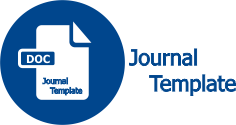Pengembangan Tes Keterampilan Proses Sains (KPS) pada Materi Asam Basa Kelas XI SMA/MA
(1) Universitas Negeri Makassar
(2) Universitas Negeri Makassar
(3) Universitas Negeri Makassar
(*) Corresponding Author
DOI: https://doi.org/10.26858/cer.v4i2.19121
Abstract
Keywords
Full Text:
PDFReferences
Dimyati & Mujiono. (2002). Belajar dan Pembelajaran. Jakarta: Rineka Cipta.
Ilmi, N., dkk. (2016). Pengembangan Instrumen Penilaian Keterampilan Proses Sains pada Pembelajaran Fisika Sma. Prosiding Seminar Nasional Fisika (E-Journal). Volume V.
Karamustafaoglu, S. (2011). Improving the Science Process Skills Ability of Prospective Science Teachers Using I Diagrams. Eurasian Jurnal of Physics and Chemistry Education. 3(1), 26-38.
Kompri. (2016). Manajemen Pendidikan: Komponen Elementer Kemajuan Sekolah. Yogyakarta: AR-RUZZ M.
Mansyur, Rasyid, H., & Suratno. (2015). Asesmen Pembelajaran di Sekolah (Panduan bagi Guru dan Calon Guru). Makassar: Pustaka Pelajar.
Mabruroh, F., & Suhandi, A. (2017). Construction Of Critical Thinking Skills Test Instrument Related The Concept On Sound Wave. Journal of Physics: Conference Series. 812(1), 012-056.
Nurdin. (2007). Model Pembelajaran Matematika yang Menumbuhkan Kemampuan Metakognitif untuk Menguasai Bahan Ajar. Surabaya: UNESA.
Riduwan. (2015). Dasar-Dasar Statistika. Bandung: Alfabeta.
Subali, B. (2009). Pengembangan tes pengukur keterampilan proses sains pola divergen mata pelajaran biologi SMA. Prosiding Seminar Nasional Biologi, Lingkungan dan Pembelajaran. Yogyakarta: Jurdik Biologi FPMIPA UNY.
Suryani, A., & Siahaan, P. (2015). Pengembangan Instrumen Tes untuk Mengukur Keterampilan Proses Sains Siswa SMP pada Materi Gerak. Prosiding Simposium Nasional Inovasi dan Pembelajaran Sains 2015 (SNIPS 2015).
Zeidan, A. H., & M. R. Jayosi. (2015). Science Process Skills and Attitudes Toward Acience Among Palestinian Secondary School Students. World Journal Of Education. 5(1).
Zulfiani, dkk. (2009). Strategi Pembelajaran Sains. Jakarta: Lembaga Penelitian UI.
Article Metrics
Abstract view : 228 times | PDF view : 86 timesRefbacks
- There are currently no refbacks.
Jurnal dipublikasikan oleh: Program Studi Pendidikan Kimia
Program Pascasarjana Universitas Negeri Makassar
Alamat JL. Bonto Langkasa Gunung Sari Makassar, 90222
Kampus PPs UNM Makassar Gedung AD ruang 406 Lt 4, Indonesia.Phone 082393643737/085145825311/085242228678
CER UNM Indexed by:

Chemistry Education Review (CER) is licensed under a Creative Commons Attribution-NonCommercial 4.0 International License.










